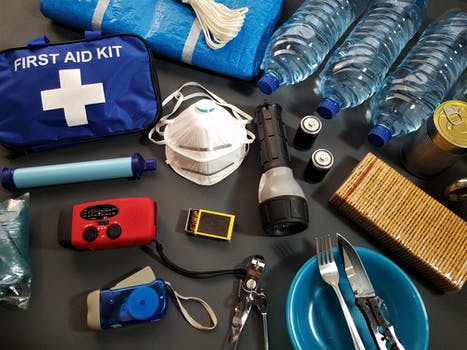Hurricane season in the U.S. runs from June through November, and many people keep a nervous eye on the coast each summer. But for some families, emergency preparedness is especially worrisome in any season. You probably harbor higher-than-average dread of disaster if anyone in your household:

- Uses a wheelchair
- Depends on electrically operated equipment for basic life functions
- Takes medications that require refrigeration
- Has physical or mental difficulties understanding standard emergency communications
- Is prone to meltdowns if normal routines are disrupted
With or without special needs in the picture, standard expert advice applies: stock up on essentials; have an emergency kit ready to grab in case of evacuation; be prepared for disruptions to electric and water services; and follow official instructions. (The American Red Cross Hurricane Preparedness Checklist is a good resource for further details.) But there are other points to remember when caring for someone with special needs.
Before an Emergency

Advance planning, important wherever the possibility of emergency exists, is all the more vital with special needs.
- In addition to first-aid supplies, food, water, batteries, and important documents, keep four to five weeks’ supply of medications on hand.
- Make sure of adequate battery power for assistance devices. A home generator won’t be much use if you have to evacuate.
- If at all possible, make advance arrangements to stay in a real home or rented room in case of evacuation: crowded public shelters present special hazards to anyone who has an immunocompromising condition, is sensitive to overstimulation, or depends on an Emotional Support Animal. (While shelters are required by law to accept trained service animals, few are equipped for ESAs.)
- Consider holding evacuation drills, where you physically practice getting everyone out of the house and onto the road. Ideally, include at least one overnight trip (during heavy-traffic hours) to your planned emergency lodgings.
After an Emergency
Often, more fatalities occur in the aftermath of an emergency than during the emergency itself. You know about the dangers of damaged electrical wires, contaminated floodwaters, and structural collapse. Here are a few additional hints on returning and cleaning up while dealing with a family member’s special needs.
- Consider bringing in extra caregiving assistance until everyday life is back to normal.
- Remember that it may be a while before medical and other infrastructure services regain normal speed of response. Be extra-diligent about preventing new emergencies that might arise from a family member’s special needs.
- If anyone is likely to have particular difficulty readjusting, prepare them emotionally and physically before returning home. Consider also whether they may need professional counseling (actually a good idea for anyone who has survived a potentially traumatic situation).
- If you left perishable food or medications at home during a power outage, the rule regarding possible spoilage is, “When in doubt, toss it out.” This is all the more important if someone has an immunocompromising condition.
- Many lethal post-emergency situations, including heart failure, are due to overexertion during cleanup efforts. Especially when dealing with water damage and heavy debris, know and mind everyone’s limits.
- Take care of yourself to take care of your loved ones. And remember, often the best thing you can do for everyone is to stay calm, stay hopeful, and stay grateful.
(For additional information, see BridgingApps reviews for Red Cross and other emergency-preparedness apps.)
Written By Katherine Swarts
